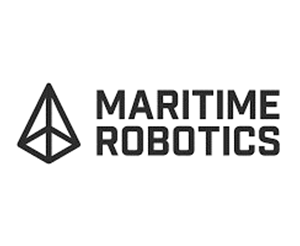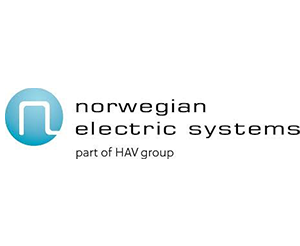Programme Tuesday - MTEC/ICMASS
Programme Tuesday 29 October
Conference Day 1 | View Conference Day 2 | View Programme Overview
Room: Trondheimssalen 1
Chair: Arne Fredheim, Research Director at SINTEF Ocean
09:00 Welcome from the Management Committee
Kay Fjørtoft, Conference chair, SINTEF Ocean
09:10 The importance of maritime research – where are we, what will be our future?
Vegar Johansen, CEO SINTEF Ocean
09:20 The academic sector – how to ensure that we achieve leading knowledge and students?
Olav Bolland, Dean at the Faculty of Engineering NTNU
09:30 The International Maritime and Port Technology and Development Conference (MTEC) in a nutshell
Thomas Ting, CDO at the Maritime and Port Authority of Singapore
09:45 The International Conference on Maritime Autonomous Surface Ships (ICMASS) in a nutshell
Ørnulf Rødseth, Chair of NFAS, Maritime Director of ITS Norway
10:00 Navigating new waters into the future
Bjørg Mathisen Døving, Vice President of Reach Remote
S1: New Energy System
Room: Trondheimssalen 1
Chair: Arne Fredheim, Research Director at SINTEF Ocean
- Design of sustainable integrated energy systems for green ports – selection and sizing
Drazen Polic, NTNU
- Dispersion of anhydrous ammonia inside a confined space onboard a hypothetical ammonia-powered vessel
Anthony Hamzah, Nanyang Technological University
- Envisioning a decision support system for the planning of alternative fuel bunkering operations in Singapore
Bryan Low, TCOMS
- Environmental assessment of Ammonia bunkering
Wang Zunya, National University of Singapore
S2: Maritime Cybersecurity
Room: Nardo/Lilleby
Chair: Knut Grythe, SINTEF Digital
- Exploring the Impact of a Cyber Attack Targeting the Thermostatic Control Valve in a Marine Main Engine's Lubricating Oil System
Yiğit Gülmez, Tallin University
- Cyber Security Assessment of An Interoperable Port Call and Voyage Optimization tool
Simon Hacks, Stockholm University
-Increasing maritime cybersecurity awareness through game-based learning
Per Håkon Meland, SINTEF
- Enhancing Maritime Cybersecurity Through Simulation-Based Training
Gayatri Kumar Tota, Singapore Polytechnic
S3: Situation Awareness
Room: Møllenberg
Chair: Even Holte, SINTEF Ocean
- Lidar-Based Obstacle Detection and Path Prediction for Unmanned Surface Vehicles
Nico Zantopp, Fraunhofer Center for Maritime Logistics and Services CML
- Dynamic Scene Representation for Docking in Urban Waters Using a Stereo Camera
Trym Anthonsen Nygård, NTNU
- A Lightweight, Polarization-Camera Equipped Sensor Rig for the Development of Autonomous Surface Vehicles
Emil Martens, NTNU
- Enhancing Situational Awareness for Remote Control of Ship Cranes
P. R. Bellingmo, SINTEF Ocean
S4: Voyage Optimization
Room: Trondheimssalen 1
Chair: Bryan Low, TCOMS
- Speed and route planning in evolving weather for efficient voyages
Bhushan Taskar, TCOMS
- A ferry route in the Skagerrak optimised via VISIR-2
Gianandrea Mannarini, CMCC
- DYnamic NAvigation and Port call Optimisation in Real Time
Agathe Rialland, SINTEF Ocean
- Just in Time Port Call Optimisation: Preliminary Regulatory Compliance Evaluation and Environmental Performance Assessment
Manolis Annetis, NTUA
S5: Autonomy Assesment
Room: Nardo/Lilleby
Chair: Per Håkon Meland, SINTEF
- Automation in the Maritime Transport System – A Framework for Planning Resilient
Lone Sletbakk Ramstad, SINTEF Digital
- Steering towards sustainability: the impact of autonomous shipping on achieving sustainable development goals
Anastasia Tsvetkova, Åbo Akademi University
- An emerging market? The European Maritime Industry’s view on Autonomous Maritime Systems: A Survey
Hans-Christoph Burmeister, Fraunhofer CML
- Towards Autonomous Shipping: Key Findings, Challenges and Data driven development from a Pilot Autonomous Vessel Project in Singapore
Peter Francis Bernad Adaikalaraj, Seatrium
S6: Maritime Risk
Room: Møllenberg
Chair: Renan Guedes Maidana, SINTEF Ocean
- Risk Analysis on Marine Autonomous Surface Ships based on Systems Theory – An application of the NET-HARMS method
Dimitris Routsis, NTUA
- Risk Assessment for Inland Vessels with Various Levels of Automation: a Hazard Identification Study
Marvin Glomsda, Universitat Duisburg-Essen
- Modular Assurance of Complex Systems Using Contract-Based Design Principles
Dag McGeorge, DNV
- Real-time Risk Modelling for Autonomous Ships
Hyungju Kim, NTNU
S7: Test and Standars for Autonomous Ships and Ports
Room: Trondheimssalen 1
Chair: Marianne Hagaseth, SINTEF Ocean
- Gap analysis and harmonization of International Standards for Maritime Autonomous Surface Ships
Kwangil Lee, Artificial Intelligence Division, National Korea Maritime and Ocean University
- Development and Field Tests of MASS on Rivers and around Harbors in Taiwan
ChiMin Liao, Ship and Ocean Industries R&D Center
- Towards the finalization of the IMO MASS Code
Sifis Papageorgiou, Norwegian Maritime Authority
- S-123 development for autonomy
Ilia Maslov, Bureau Veritas Marine & Offshore
S8: Energy Efficiency
Room: Nardo/Lilleby
Chair: Espen Johansen Tangstad, SINTEF Ocean
- Multi-Horizon Model Predictive Control for Energy Management in Zero-Emission High-Speed Passenger Vessels
Samieh Najjaran, NTNU
- CFD studies into frictional effects of ship coatings to enhance condition monitoring & increase efficiency
Haihua Xu, TCOMS
- Just-in-Time Port Call Optimization: Challenges and IT-Systems
Julia Pahl, Syddansk Universitet
- Model-Based Design Techniques in the Development of Samsung Autonomous Ship System
Ismail Bayezit, Samsung Heavy Industries
S9: Traffic Monitoring and Safe Navigation
Room: Møllenberg
Chair: Ole Andreas Alsos, NTNU
- A Formalism for Scalable Maritime Traffic Monitoring and Explainable Anomaly Detection and Resolution at Vessel Traffic Services
Thomas Stach, Fraunhofer CML
- Data-driven construction of maritime traffic networks for AI-based route prediction
Jan-Hendrik Webert, SINTEF
- Scenarios of Multiple Vessels Encounter for Safety Evaluation for Automatic Collision Avoidance Algorithm using AIS Data
Makiko Minami, National Maritime Research Institute
- Comparison of methods for using risk information in path planning for autonomous surface vessels
Susanna Dybwad Kristensen, NTNU
S10: Autonomous Navigation
Room: Trondheimssalen 1
Chair: Kwangil Lee, Artificial Intelligence Division, National Korea Maritime and Ocean University
- A Syntactic-Semantic-Pragmatic layered data quality framework for reliable, flexible, and traceable maritime data quality assessment
Ke Wang, A-Star
- Perform assessment of COLREGs onboard a maritime autonomous surface ship: Narrow Channels and Traffic Separation Schemes
Paul Koch, Fraunhofer
- Manoeuvring in shallow and confined water with model predictive track controllers
Katrien Eloot, Flanders Hydraulics
- A Simple and Forgiving Automatic Docking System for Underactuated USVs
Jakob Maximilian Odenwald, NTNU
S11: Safety and Risk
Room: Nardo/Lilleby
Chair: Julia Pahl, Syddansk Universitet
- Auonomy in Maritim Robotics
Vegard Evjen Hovstein, Maritime Robotics
- DC Bus Voltage Sensor Fault Detection in Marine Hybrid Power Systems
Namireddy Praveen Reddy, NTNU
- Risk assessment of gas plume dispersion in alternative fuel handling through validated computational fluid dynamics approach
Vinh-Tan Nguyen, A-star
- Mitigate The Impact Of Accidental Ammonia Release During Bunkering Operation
- Liu Ming, Nanyang Technological University
S12: Maritime Assurance
Room: Møllenberg
Chair: Lars Andreas Lien Wennersberg
- Safety Assurance of Maritime Autonomous Surface Ships
Matthew Wylie, Safety Capability, BMT
- Towards Integrated Safety Assurance Methodology for Autonomous Vessel Navigation Systems
Takuya Nakashima, The University of Tokyo
- Modular assurance of an Autonomous Ferry using Contract-Based Design and Simulation-based Verification Principles
Jon Arne Glomsrud, DNV
- Consideration of Simulation Scenarios for Safety Assessment of Heading, Speed and Track Control Function
Makoto Ito, ClassNK
The dinner takes place in Trondheimssalen 1 at Scandic Nidelven Hotel.











